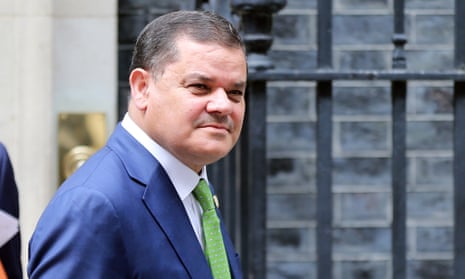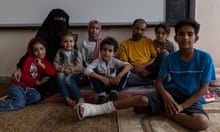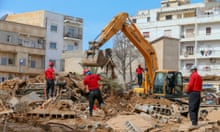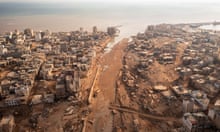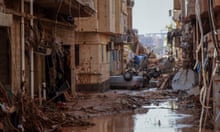Efforts to set the terms for presidential and parliamentary elections in Libya on 24 December are mired in chaos, as UN officials are accused of breaching their mandate by facilitating efforts to prevent them going ahead.
The UN admitted it was facing difficult splits among the 75-strong body it set up last year to choose an interim government and agree the roadmap to the elections.
At a bitter and ill-tempered week-long meeting in Geneva, marred by allegations of bribery, some of the Libyan Political Dialogue Forum (LPDF) delegates managed to persuade UN officials to allow them to reopen the issue of whether presidential elections should be held, or whether there should first be a referendum on a constitution under which the president will operate.
But other delegates, convinced the existing political class is manoeuvring to stay in power without elections, said the issue of whether the election should go ahead had already been settled last year and subsequently endorsed by a UN security council resolution in April and then at a meeting of world powers in Berlin in June.
In a statement, 26 members of the forum condemned the UN after it proposed the LPDF vote on a range of options including keeping the current unelected government in power, and only holding an election for a new parliament. The current Government of National Unity, bringing the east and west of the country together, was set up in March 2021 and is led by the businessman Abdul Hamid Dbeibah. His government’s primary mandate was to prepare for the elections with a deadline of 1 July set to give officials time to prepare an electoral roll.
The week-long meeting outside Geneva has been described as chaotic, with delegates nearly coming to blows and claims of threatening WhatsApp messages and political bribery. Much of the bargaining is being held in secret away from the main conference site, and at one point exasperated UN officials admitted their inability to find a solution and suggested three elders be chosen from the group to mediate.
Some of the sessions are being screened live back to Libyans sweltering in a two-week heatwave and enduring lengthy power cuts.
The UN’s special envoy to Libya, Jan Kubis, has not been present due to having Covid, but over a shaky Zoom line he urged delegates on Thursday to end the “intolerable personal abuse”.
The idea of an election for a president, a new post in Libya, answerable to parliament was endorsed by the UN security council in April.
Elham Saudi, a member of the LPDF, told the Guardian from Geneva that the process for charting Libya’s political future was “wayward and out of control”.
She said: “What is happening right now is in total breach of the agreed roadmap, the Berlin peace process, and the relevant UN security council resolution. The UN’s leadership is entertaining proposals that would result in keeping the current government in place in clear breach of the roadmap.
“There is a significant risk with these deals being made off-site that women, civil society and minorities get sidelined, which is a breach of the UN security council mandate. When there is a lack of transparency, it is impossible to know the terms of any deal being struck.”
She added: “Foreign governments pay for UN officials and set their mandate, and they now need to intervene to bring these officials back under control.”
Tarek Megerisi, a Libya analyst at the European Council on Foreign Relations, said the Geneva meeting was “dangerously unravelling [and] charting a course that diverges from the Berlin process and the UN security council resolutions, which will cause division and spoil elections”.
He said LPDF participants that wanted a democratic government in Libya needed outside support and pressure on the UN to salvage the issue.
In a letter to Kubis, the leader of the Ihya Libya party, the former diplomat Aref Ali Nayed, said he feared for his country if the elections were not held, adding there was a repetition of the corruption that had disfigured the appointment of the previous government.
The opposition to the presidential election stems from a mix of interest groups, including those already in power, those that fear the rules will disqualify their candidate from standing and those concerned an election would be too divisive in a highly polarised society bereft of a unified security force. Political power in Libya has long been a source of patronage and enrichment.
